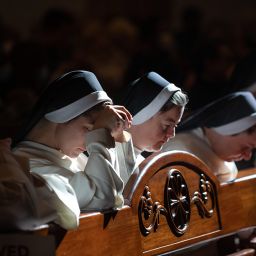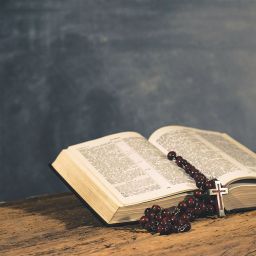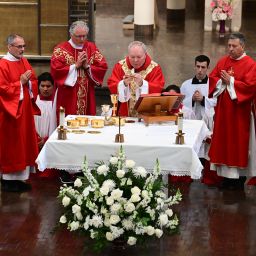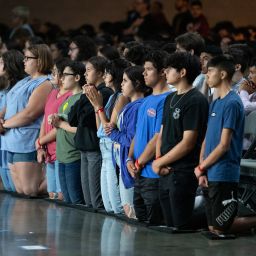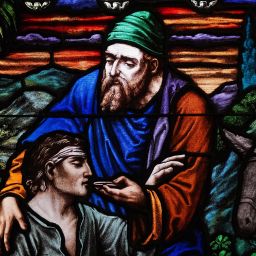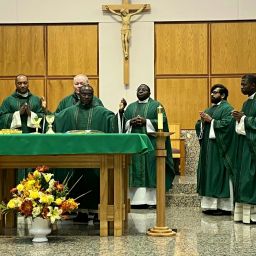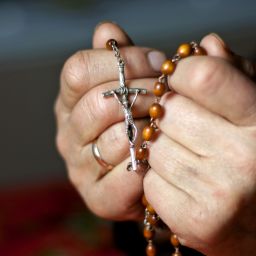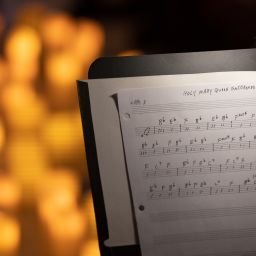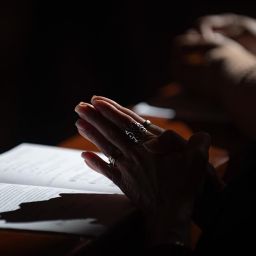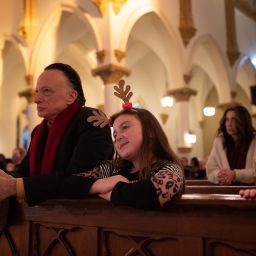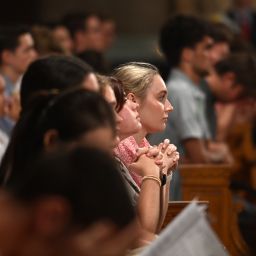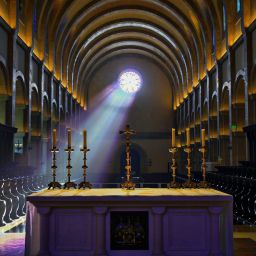By Father Jacob Dankasa
Special to The Texas Catholic
During this last Easter, as in every Easter season, many people came into the Church, either through the sacraments of initiation (baptism, confirmation and Eucharist) or through reception into full communion with the Catholic Church. These are great moments for the Church and for those who are coming into it. These candidates usually go through a period of formation before reception of the sacraments in order to learn more about their faith and the journey they’re about to undertake.
It is very important to remind those who are coming into the Church and, indeed, all of us who are already in it, that the sacraments we receive in the Church bring us into a life journey with Christ that is eternal. They are not meant to be “graduation ceremonies.” We don’t go through formation and, at the end, receive sacraments as a sign of “graduating” from the program as we would do in academic life. There are sometimes instances in which people go through formation, receive the sacraments of initiation, and then don’t come back to the Church or remain committed to the faith, only to reappear when they are ready to receive another sacrament, perhaps marriage. This is why we must help guide those preparing for the sacraments to understand and internalize the mystery of Christ that they are about to receive, and to appreciate its value to their spiritual growth.
When we receive the sacraments of initiation, for instance, we’re initiated into a community of faith, a Christian community; we become part of the Church and should continue to grow in it. Initiation makes us members, and as we remain members we must stay committed to our baptismal promises and participate in the life and activities of the Church. The sacraments give us grace, a total gift of God. But grace will not be useful if we don’t remain close to the Giver of that grace.
People who receive the sacraments of initiation in the Catholic Church are accorded the same rights and responsibilities as any other Catholic. They become full members of the Church — members in totality, not in a partial sense. Therefore, they must strive to take their place among the people of God and remain very active and committed to the faith that they profess. They must not treat the reception of the sacraments as the conclusion of “class courses” whereby they receive a certificate of completion, a graduation ceremony of sorts. It’s not a graduation; it’s not an ending. It’s the beginning of a life journey with Christ into eternity. The sacraments initiate us into, not graduate us out of, the Church and faith. We who have received these sacraments must be thankful for the immense gifts of grace God has given us and strive to give ourselves back to God to use us for His purposes.
This is why the period of mystagogy, the period between Easter and Pentecost Sunday, is so very important for the neophytes. During these seven weeks, they are helped to better understand the mystery of the faith they have embraced and to be integrated into the community through guidance and spiritual nourishment. Mystagogy is the process of taking the neophytes on a journey toward further understanding their faith and applying it to their personal experience, as well as guiding them to consider participating in the ministries and outreach activities of the Church. It is essential that the process of mystagogy should not be ignored or considered unimportant; the reception of the sacraments and integration into the Church should not end at the Easter Vigil. The community has an important role to play in accompanying the newly baptized or initiated in their journey toward understanding — and becoming fully integrated into — the faith they have now embraced. Only then can they understand that growing in faith is a journey, and it can only be fully embraced through understanding and participating in the mystery of Christ and His Church.
Let all of us who have received the grace of the Church’s sacraments participate in this process of mystagogy in our own parish. Let us make a point of congratulating, encouraging, and supporting the neophytes among us!
Father Jacob Dankasa is the pastor of Holy Family of Nazareth Catholic Church in Irving.

